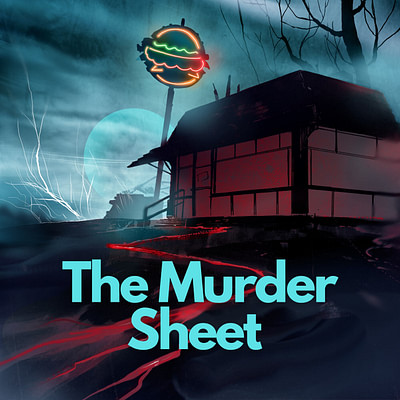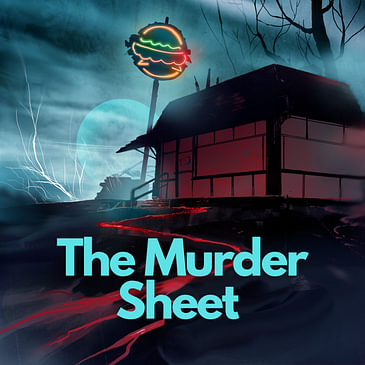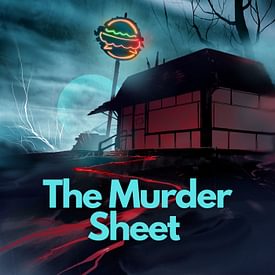The Cheat Sheet is The Murder Sheet's segment breaking down weekly news and updates in some of the murder cases we cover.
In this episode of The Cheat Sheet, we will talk about two high-profile cases and revisit two other cases.
ABC's coverage of the developments in the murder of Justin Turner: https://abcnews.go.com/US/wireStory/judge-fair-trial-impossible-drops-murder-charges-parents-110932667
ABC 4's coverage of the developments in the murder of Justin Turner: https://abcnews4.com/news/local/attorney-in-justin-turner-1989-murder-case-argues-overlook-serial-killer-in-court-filings-megan-victor-turner-berkeley-county-sheriffs-office-abc-news-wciv-news-4
Files from the Federal Bureau of Investigation on the Gabby Petito case, including her letter to Brian Laundrie: https://vault.fbi.gov/brian-laundrie/brian-laundrie-part-01/view
Information from the National Domestic Violence Hotline on emotional abuse: https://www.thehotline.org/resources/what-is-emotional-abuse/
Billboard's coverage of the case involving Jeffery Williams, also known as Young Thug, and his attorney Brian Steel: https://www.billboard.com/business/legal/ysl-young-thug-rico-trial-atlanta-jury-seated-1235462012/
Above the Law's coverage of the case involving Jeffery Williams, also known as Young Thug, and his attorney Brian Steel: https://abovethelaw.com/2024/06/judge-punishes-attorney-for-knowing-about-secret-ex-parte-with-witness/
Atlanta Journal Constitution's coverage of the case involving Jeffery Williams, also known as Young Thug, and his attorney Brian Steel: https://www.ajc.com/news/crime/young-thugs-lawyer-held-in-contempt-taken-into-custody/77NH4GKN7NA27O4G2HL575NSDA/
The American Bar Association's coverage of the case involving Jeffery Williams, also known as Young Thug, and his attorney Brian Steel: https://www.abajournal.com/news/article/why-lawyers-in-young-slime-life-trial-got-a-free-lunch-from-strip-club#google_vignette
----------------------------------------------------------------------------------------------------------------------------------------------------------------
We are super excited to shout out our sponsor VIIA Hemp — their gummies deliver great results, no matter what mood you’re trying to create.
We find that we can have trouble winding down after a day running around reporting, podcasting, and getting embroiled in cereal-related capers. That’s where VIIA Hemp comes in — they offer a range of gummies of the THC and THC-free CBD and CBN varieties. They’re delicious and legal to ship to all 50 states.
The folks at VIIA Hemp craft each gummy based on a mood or goal, try now to improve your sleep, recovery, focus, pleasure, and creativity. Or just to enjoy and vibe. I really love their THC-free CBD, CBN, and CBG gummies. Specifically, Zen is a nice blueberry treat that also helps me relax and rest at the end of the day.
For anyone looking for other sleep-focused VIIA options, their New Dreams formulations. These Dreams formulations also allow for a fully customizable sleep journey, featuring 2, 5, and 10mg options.
Head to Viiahemp.com and use the code MSHEET to receive 15% off + one free sample of their award-winning gummies. (21+). That’s V-I-I-A-HEMP.COM & use code [ MSHEET] at checkout. PLEASE support our show and tell them we sent you. Get the rest you deserve with Dreams from VIIA.
----------------------------------------------------------------------------------------------------------------------------------------------------------------
Support The Murder Sheet by buying a t-shirt here: https://www.murdersheetshop.com/
Send tips to murdersheet@gmail.com.
The Murder Sheet is a production of Mystery Sheet LLC.
See Privacy Policy at https://art19.com/privacy and California Privacy Notice at https://art19.com/privacy#do-not-sell-my-info.


